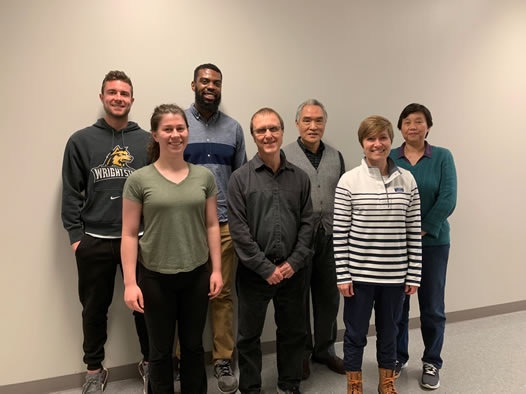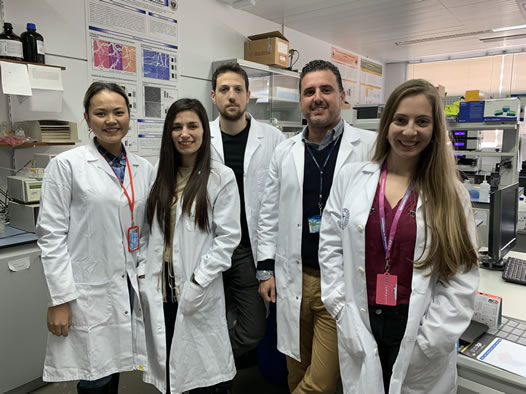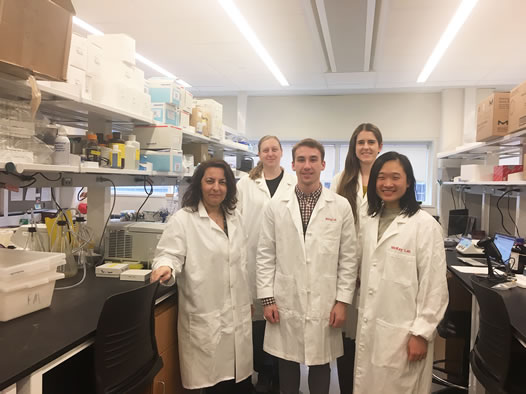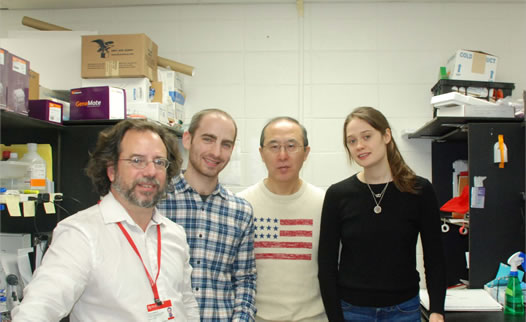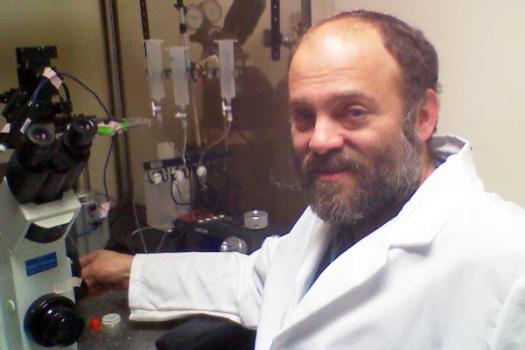MDA Resource Center: We’re Here For You
Our trained specialists are here to provide one-on-one support for every part of your journey. Send a message below or call us at 1-833-ASK-MDA1 (1-833-275-6321). If you live outside the U.S., we may be able to connect you to muscular dystrophy groups in your area, but MDA programs are only available in the U.S.
Grant - Winter 2019 - CMT - Kleopas Kleopa, MD
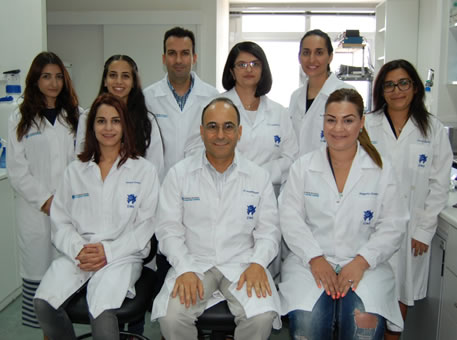
"By establishing an effective, clinically applicable gene therapy approach targeting peripheral nerves, we may be able to develop treatments for a number of other similar inherited neuropathies or even for more common acquired neuromuscular disorders such as motor neuron disease and inflammatory neuropathies."
Kleopas Kleopa, MD, professor and senior consulting neurologist at the Cyprus Institute of Neurology and Genetics, Cyprus School of Molecular Medicine, in Nicosia, Cyprus, was awarded a research grant jointly funded by the Charcot-Marie-Tooth Association (CMTA) and MDA totaling $276,430 over three years to perform critical, proof-of-concept studies to test whether delivery of the connexin 32 gene (Cx32) using an adeno-associated virus (AAV) vector can improve symptoms in a mouse model of CMT1X, as well as determine the optimal route for delivery of the therapy.
Mutations in the gene coding for the gap junction beta-1 protein (GJB1), also known as connexin 32 (Cx32), are associated with the X-linked form of Charcot-Marie-Tooth disease (CMT1X), which affects approximately 1 in 25,000 people and is the second-most-common form of CMT. With previous MDA-funded support, Dr. Kleopa pioneered a gene therapy approach to treat CMT1X, showing that a single spinal injection of the Cx32 gene was associated with production of normal protein in nerves and improvement of peripheral nerve health and motor performance in a mouse model of CMT. In a follow-up study co-funded by the MDA and the CMTA, he examined whether repeated injections in mice led to increased protein levels and tested whether treatment at later stages of the disease led to improvement like that seen for treatment in the early stages.
The target cell type for this therapy is the Schwann cell, which generates the insulating myelin sheath around peripheral nerves. The challenge for CMT1X and other demyelinating forms of CMT is optimizing delivery of the gene to Schwann cells. In previous studies, Dr. Kleopa employed a different type of viral vector to deliver the Cx32 gene, but for this new study he will adapt this approach to AAV, which has been more widely used in the nervous system and shown promise in clinical studies for other diseases. The project will test several types of AAV and different injection paradigms to determine the best method to restore the function of Cx32 in Schwann cells. Positive results may help advance development of treatments for other types of CMT affecting Schwann cells, as a similar AAV approach can be applied to CMT1A and other subtypes of CMT1.
https://doi.org/10.55762/pc.gr.84552
Grantee: CMT - Kleopas Kleopa, MD
Grant type: Research Grant
Award total:
Institution:
Country:






